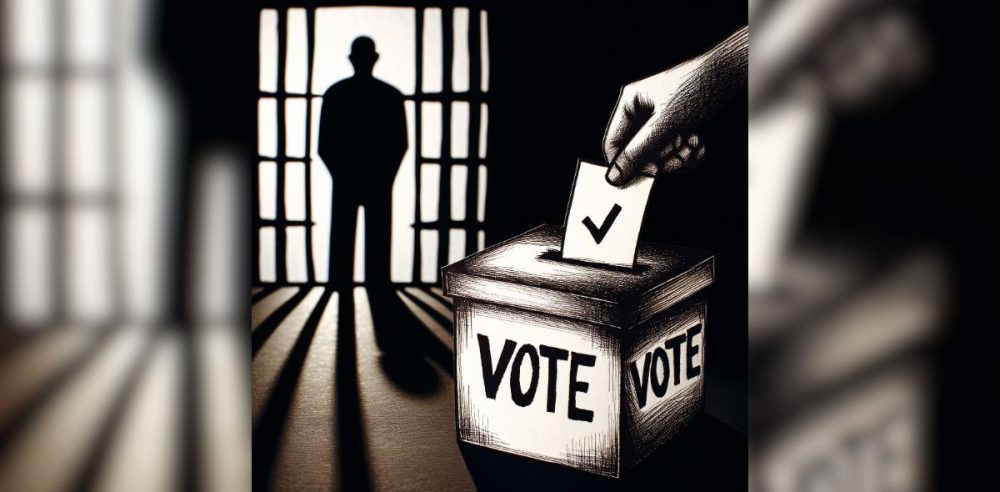Question: Can inmates in Texas state prisons legally vote?
Answer: Yes, they can, under certain circumstances, but it appears that few inmates, lawyers, and voting rights advocates are clear on the rules.
Felons who are actively appealing their convictions, are at least 18 years old, and have not been found “mentally incompetent” by a judge can register to vote from prison, according to the Department of Criminal Justice’s Offender Orientation Handbook.
However, once a person has been “finally convicted,” meaning they have exhausted and lost all their direct appeals, and a “mandate” is issued by the court, the felon is no longer eligible to vote.
People who have been convicted of a felony and have never appealed cannot legally vote.
A spokesperson from the Office of the Secretary of State, the entity that helps administer elections in the state, cautioned that every case is unique and that incarcerated persons seeking to vote should consult with their lawyer first, the Texas Tribune reported.
Still, many voting rights advocates, defense lawyers, and criminal law experts remain unaware of these provisions for voting within the state prison system.
Jennifer Too, project director at Lioness Justice Impacted Women’s Alliance, a nonprofit for current and former inmates, said more state prisoners would exercise the right to vote if it were more accessible.
“Nobody’s asking to do this because they have no idea that they can,” she said, per the Texas Tribune.
“This is utterly news to me,” said Gretchen Sween, an attorney representing clients on death row. “It never even occurred to me any of them had the right to vote, and it should be investigated.”
In Texas, convicted felons who have been released from prison and completed their probation or parole may once again become eligible to vote.
However, the laws vary in other states.
In North Carolina, a felony conviction results in permanent disenfranchisement for all criminal convictions. Only certain criminal convictions result in disenfranchisement in Arizona, Florida, and Louisiana. According to the Brennan Center for Justice, there is no disenfranchisement law for people with criminal convictions in Washington, D.C., and Vermont.
Inmates in Texas who fall into the qualifying category must register in the county they lived in before becoming incarcerated and can request that a mail ballot be sent to them in prison. The application form has a checkbox to indicate that the applicant is “confined in jail or involuntary civil commitment” as their reason for voting by mail.
There are approximately 134,000 inmates in Texas state prisons, but the state does not keep records of how many are eligible to vote.


